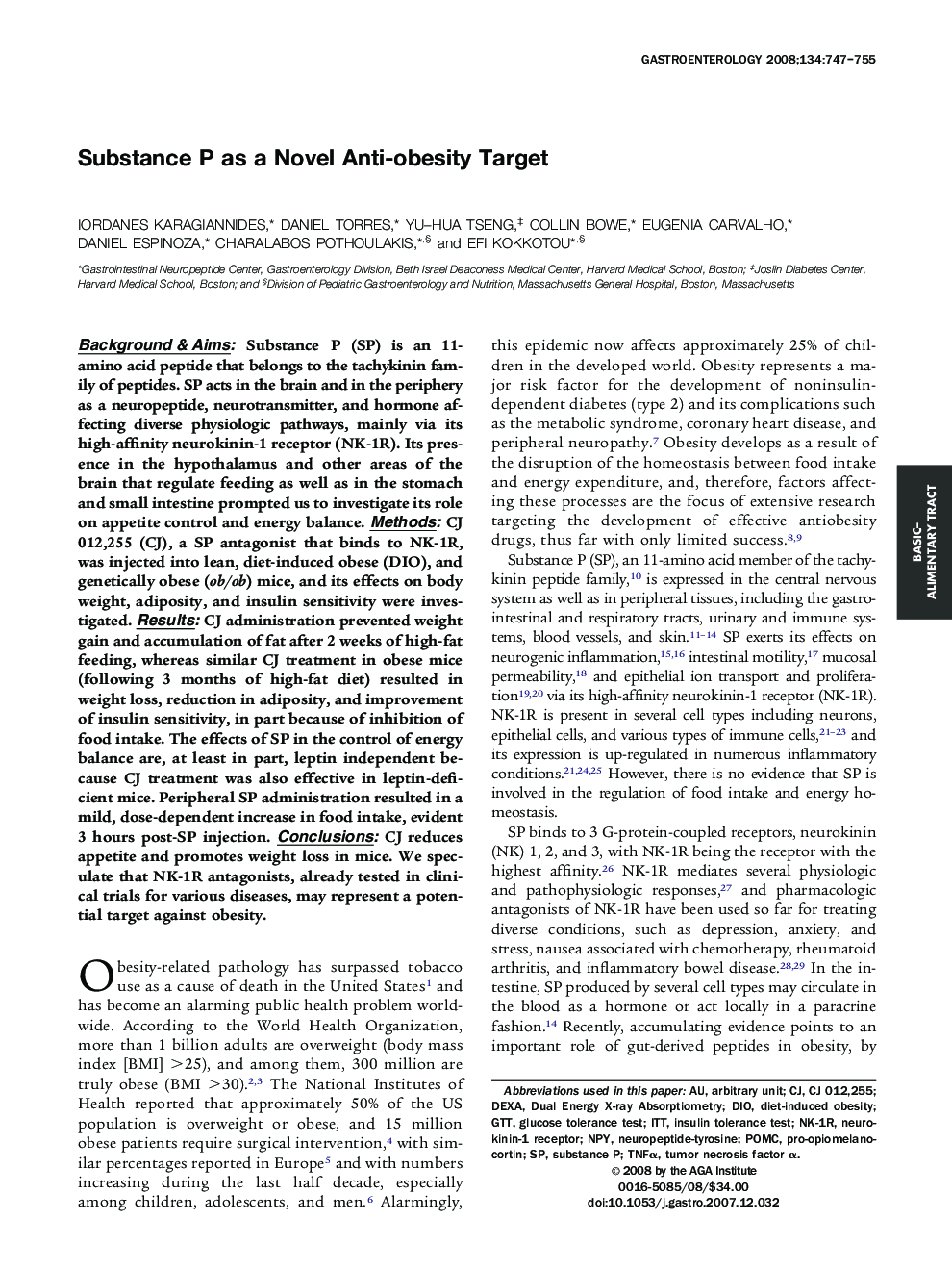| Article ID | Journal | Published Year | Pages | File Type |
|---|---|---|---|---|
| 3296379 | Gastroenterology | 2008 | 10 Pages |
Abstract
Background & Aims: Substance P (SP) is an 11-amino acid peptide that belongs to the tachykinin family of peptides. SP acts in the brain and in the periphery as a neuropeptide, neurotransmitter, and hormone affecting diverse physiologic pathways, mainly via its high-affinity neurokinin-1 receptor (NK-1R). Its presence in the hypothalamus and other areas of the brain that regulate feeding as well as in the stomach and small intestine prompted us to investigate its role on appetite control and energy balance. Methods: CJ 012,255 (CJ), a SP antagonist that binds to NK-1R, was injected into lean, diet-induced obese (DIO), and genetically obese (ob/ob) mice, and its effects on body weight, adiposity, and insulin sensitivity were investigated. Results: CJ administration prevented weight gain and accumulation of fat after 2 weeks of high-fat feeding, whereas similar CJ treatment in obese mice (following 3 months of high-fat diet) resulted in weight loss, reduction in adiposity, and improvement of insulin sensitivity, in part because of inhibition of food intake. The effects of SP in the control of energy balance are, at least in part, leptin independent because CJ treatment was also effective in leptin-deficient mice. Peripheral SP administration resulted in a mild, dose-dependent increase in food intake, evident 3 hours post-SP injection. Conclusions: CJ reduces appetite and promotes weight loss in mice. We speculate that NK-1R antagonists, already tested in clinical trials for various diseases, may represent a potential target against obesity.
Keywords
Related Topics
Health Sciences
Medicine and Dentistry
Gastroenterology
Authors
Iordanes Karagiannides, Daniel Torres, Yu-Hua Tseng, Collin Bowe, Eugenia Carvalho, Daniel Espinoza, Charalabos Pothoulakis, Efi Kokkotou,
